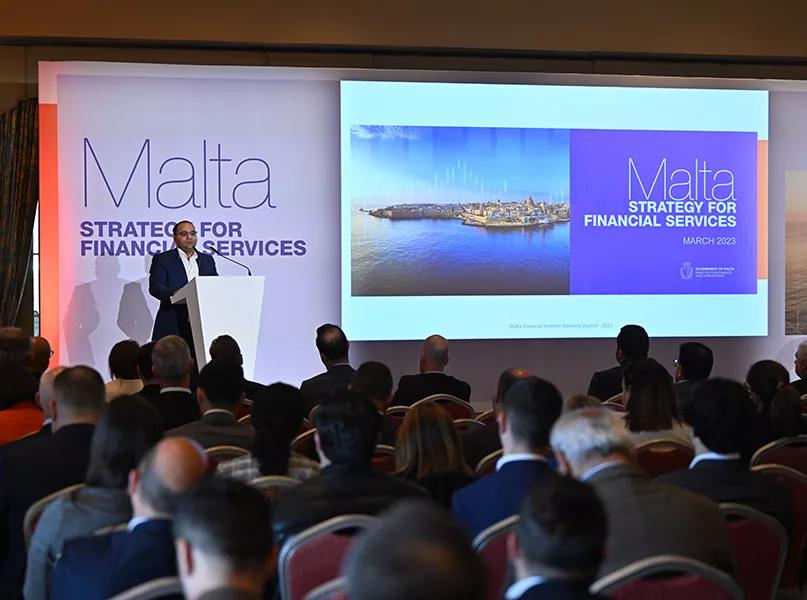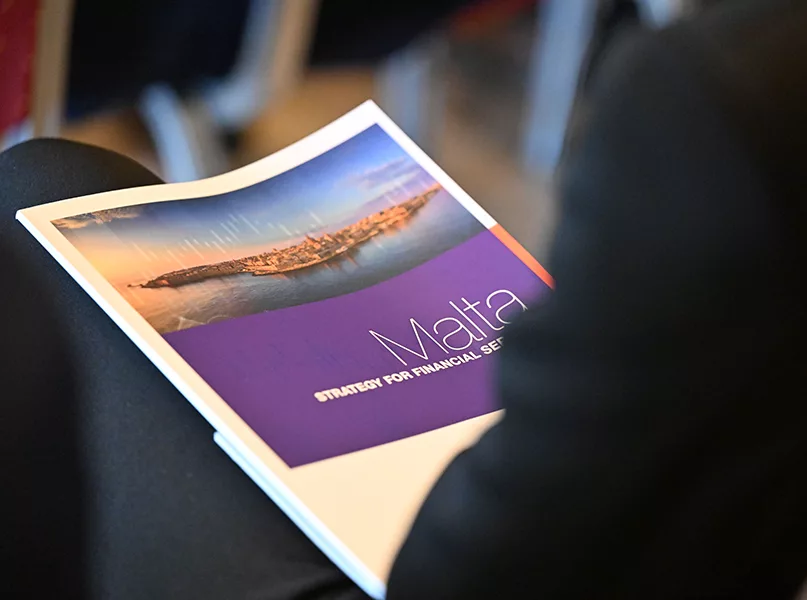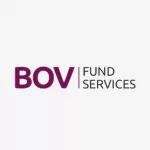Against a backdrop of global financial expansion and digitalisation, whilst competing within a saturated European market, Malta’s economy continues to thrive.
SPOTLIGHT ON FINANCE IN MALTA
In recent years, Malta has flourished into a vibrant international financial centre and one of Europe’s most competitive investment locations. Unafraid to set itself ambitious targets, the Maltese economy has cultivated a reputation for excellence.
Despite being the EU’s smallest member state, the country boasts a booming economy with a high annual gross domestic product (GDP), characterised by a financial surge that has elevated Malta’s GDP by over six percent in 2022, with the figures continuing to trend upwards since.
According to the Office for National Statistics (ONS), in Q3 of 2023, Malta’s GDP grew by 7.1 percent in volume terms year-on-year, after enjoying growth of 6.4 percent and 5.4 percent respectively in the previous two quarters.
Financial services are integral to the Maltese economy and represent 11 percent of the country’s rising GDP. Ranging from financial institutions to insurance, asset management to entities, Malta’s financial services provide everything from payment services to compliance whilst playing a pivotal role in supporting the economy.
As such, the stock position of foreign direct investment (FDI) in the country amounted to €460.8 billion in December 2022. A staggering 97.7 percent of this total was generated by financial and insurance activities.
As the nation continues to prosper, Malta has set its sights on becoming a global leader in the world of digital finance. Whilst investment into profitable financial services such as pensions, payments, and securitisation have historically been the country’s bread and butter, blockchain technologies are now seen as key to sustaining growth. As such, FinTech entrepreneurs and investors have flocked to the country.
Furthermore, the island has garnered global respect for its decision to regulate distributed ledger technologies (DLTs) amidst a digital finance revolution. Alongside its steadfast vision for the continued development of the financial services sector, Malta’s belief in a strong regulatory environment for the blockchain sector safeguards its future.
Having positioned itself as a worthy contender amongst Europe’s finance stalwarts, Malta’s economy emerges as a force to be reckoned with.

Q&A WITH GEORGE VELLA, CHAIRMAN, FINANCEMALTA
We speak to Chairman, George Vella, about the role of FinanceMalta in supporting the country’s economic growth
As it seeks to attract FDI and promote Malta as an international financial centre, FinanceMalta is a multifaceted organisation that has made important and ongoing contributions to a thriving national economy over the years.
Primarily, FinanceMalta’s remit is to promote the country as a financial services jurisdiction by attracting global operators, as well as providing networking and partnership opportunities to existing operators.
The organisation’s overall goal is to grow the Maltese financial services sector into a robust and innovative investment hub.
Firstly, could you talk us through the origins of FinanceMalta?
George Vella, Chairman (GV): FinanceMalta came into being in 2007, soon after Malta’s decision to enter the EU and just a year before its entry into the Eurozone.
The Malta Financial Services Authority (MFSA) had been officially set up through legislation five years prior, and there was political consensus about the importance and potential of the financial sector, especially as the island was trying to wean itself away from its past dependence on industry and instead move towards a more balanced economy.
Bearing in mind that Malta has few natural resources aside from a well-educated workforce with a positive work ethic, financial services seemed the best way to nurture the country’s economy, and perfectly complemented tourism and other existing service industries and infrastructure.
Given Malta’s proximity to Europe, the opportunities offered by EU membership, and the beneficial air and sea connections that we have seen since, the decision has proven to be a wise and prescient one.

What is FinanceMalta’s overall mission, and how have you set out to achieve it?
GV: FinanceMalta is there to coordinate all the resources of the industry and government to ensure Malta maintains a modern and effective legal, regulatory, and fiscal framework. We believe that this enables the growth and prosperity of the financial services and FinTech sectors.
One key aspect of our mission is to promote the nation as an international business and financial centre not only outside Malta, but also within the island itself. This is important since the jurisdiction thrives thanks to the ecosystem that has grown here, from financial to legal and compliance operators, to name a few.
What is your current take on the financial industry in Malta?
GV: At the risk of sounding biased, the financial industry in Malta is, indeed, exciting.
The country has created a niche which has thrived thanks to a number of factors, such as an approachable regulator, forward-thinking legislation which has given us a competitive advantage, and the cosmopolitan nature of the workforce, which has brought a tremendous dynamism and a breathtaking pace of innovation.
Of course, this sort of growth brings challenges – not to mention scrutiny – and Malta has been working hard to constantly improve the fight against tax evasion, information collection on ultimate beneficial ownership, and more effective information sharing with local and international authorities.
These were the key points highlighted by the Financial Action Task Force (FATF) in a review some years ago, which Malta has fully taken on board, as it realises that in financial services, perhaps more than any other sector, reputation is a key element to success.
What fundamental role does the financial sector play within the Maltese economy, and how pivotal is FinanceMalta’s role in supporting the country’s economic growth?
GV: In terms of the financial sector’s role in the Maltese economy, the figures speak for themselves. Over €550 million in the first three quarters of 2023 – the latest official figures available from the ONS – came from financial and insurance services, out of €14.5 billion GDP.
FinanceMalta is a public/private initiative that has over 200 corporate members representing every sector in financial services, so it is fair to say that we have a major role to play.

How does FinanceMalta promote the country as a business and financial hub, both nationally and internationally?
GV: Just last year, FinanceMalta participated in or organised over 90 promotional initiatives which included local and overseas conferences, webinars, podcasts, and print media content. The FinanceMalta Foundation, with the support of its members, promoted the jurisdiction across different regions.
We have also been very active in regard to dozens of our “FinTalks” podcasts (with hundreds of followers for each), where we share the insights and expertise of our members, quarterly newsletters, and ad hoc interviews with key stakeholders. We are ubiquitous on social media too, particularly on LinkedIn, Facebook, Instagram, YouTube, X, and Threads.
In terms of your FinTalks podcasts, what would you say has been your most exciting episode to date?
GV: It has been a record year for the FinTalks podcasts. We did 44 episodes in 2023, which were downloaded over 3,500 times, reaching an impressive 60 countries!
There were such a range of topics that it would be difficult to single one out, but the opportunity to include some of the senior speakers at our conference last autumn was very exciting for us, as it gave us access to developments and insights from leading entities.
Could you outline some of FinanceMalta’s key achievements over the past year, and any upcoming projects or initiatives that you would like to highlight?
GV: The most important initiative for us is the 17th edition of our Annual Conference, scheduled to be hosted at the Hilton, Malta, on 29th November 2024. It is the largest event dedicated to financial services in the country and attracts many speakers and delegates, together with Maltese financial services practitioners.
Last year, the conference hosted more than 40 leading local and international experts addressing and discussing the most topical themes in a series of panel sessions throughout the day, as well as 20 sponsors supporting the event and exhibiting their products and services. FinanceMalta is currently working on the programme and sponsorship packages for this year’s event. I invite you to register your interest to attend, as well as to check for updates on our conference website.
We also host events abroad to promote our jurisdiction. Last year, we gathered over 600 participants at Guildhall in London for an event dedicated exclusively to Maltese financial services, and during 2024 we will plan more targeted activities in jurisdictions of interest. The first of these events will be a meeting in London, where we will present the newly launched Notified Professional Investor Fund (NPIF), a product that shows, once more, the importance of innovation in financial services.
In addition to these activities, we will maintain a robust presence in international events, spanning large exhibitions such as Money20/20, one of the most relevant payment events in Europe, to smaller conferences targeting other industry sectors, such as sustainable finance, insurance, family offices, funds, and asset management.
These activities will be complemented by a strong digital presence. Our podcast series has achieved unprecedented numbers in terms of reach, and the same goes for our quarterly newsletter and social media.
“FinanceMalta was, and still is, a key player in the formulation of the national strategy for financial services, drawn up by the MFSAC”
George Vella, Chairman, FinanceMalta

Could you share some more details on the new framework for NPIFs?
GV: At the end of 2023, the MFSA launched the framework for NPIFs, one of several key regulatory and policy initiatives relating to asset management and serving as a new and efficient route to market for sub-threshold asset managers.
The NPIF framework offers a non-retail fund structure, which looks to replicate the notification process applied so successfully with the Notified Alternative Investment Fund (NAIF) to funds promoted by managers considered to be out-of-touch with thresholds set out in the Alternative Investment Fund Managers Directive.
Similar to the NAIF, the NPIF framework contemplates a fund structure which is subject only to a notification requirement with the MFSA (rather than a full licensing process) and with limited ongoing supervision. As a result, this should allow managers operating such funds to benefit from a quick time to market, and comparatively lower set-up and ongoing compliance costs. The MFSA should be required to deliver an acknowledgement of notification within 10 days from the receipt of a complete notification pack.
In light of the less onerous regulatory requirements that are applicable, NPIFs may be non-retail schemes, available only to those falling into the ‘professional’ or ‘qualifying investors’ categories.
We see the introduction of NPIFs as an important innovation within the financial services offering. They have been on the cards for over a year and were also welcomed by the consultation stakeholders in the MFSAC, meaning that they have wide backing across the sector.
Could you tell us more about FinanceMalta’s involvement in the WAIFC and the EU Roundtable of Financial Centres?
GV: FinanceMalta was accepted into the WAIFC in November 2022, bringing the membership of the Brussels-based non-profit association up to 19.
The WAIFC was set up in 2018, and represents leading international financial centres from across the globe. FinanceMalta welcomed the chance to be part of this network as it gives us the opportunity to share best practices, especially with regard to issues that affect us all such as sustainable finance, innovation, and human capital.
Malta is also geographically the ideal bridge between Europe and North Africa, and can therefore contribute considerably to the dialogue. The WAIFC organises specific projects, some of which are also within our zone of interest, such as the WAIFC working paper entitled ‘Enhancing Supply Chain Finance for the Promotion of the Green Transformation’.
The implementation of a transition strategy to achieve net zero greenhouse gas (GHG) emissions targets through supply chains is becoming an important challenge. Members of the WAIFC have engaged in a discussion on the roles of financial markets and measures to mitigate associated risks. They have also explored various approaches so that such methods can be adapted flexibly to align with the conditions across different economies.
Given that there are various small and medium-sized suppliers involved throughout supply chains, we need to employ technologies for transparency of transactions in a cost-efficient manner. This is highly challenging, and no single financial centre can resolve these issues alone. Therefore, FinanceMalta has teamed up with a few other financial centres to contribute towards a white paper on this subject by sharing our country’s experiences, providing case studies and lessons learned.
Our membership of the EU Roundtable of Financial Centres has the same aims with a focus on European developments such as boosting securities issuance and retail investment in capital markets, bridging the diversity and inclusion gap, as well as securitisation.

What is FinanceMalta’s stance on ESG practices and sustainable finance?
GV: We are thrilled that there has been so much discussion around ESG and sustainable finance. This is clearly the only way that financial services will thrive in the future.
The MFSA keeps the local sector informed about ESG developments at European level and has organised informative seminars on the topics.
This has been mirrored by publications and events emanating from the non-profit and private sectors. An ESG alliance, endorsed by several major organisations on the island, has also been set up for the sharing of information and to implement high ESG standards across the board.
FinanceMalta has supported these developments, participating actively whenever possible in local as well as international initiatives, such as those organised by the WAIFC, and including ESG topics in its podcasts and annual conferences.
Last January, FinanceMalta launched the Malta Sustainable Finance website. Its primary objective revolves around fostering a deeper understanding of, advocating for, and facilitating the progression of sustainable finance initiatives in Malta.
It has been encouraging to see the unilateral adoption of ESG and sustainable finance. We will do our utmost to continue promoting ESG principles and their adoption by our members.

How do you see the Maltese financial sector developing over the coming years?
GV: FinanceMalta was, and still is, a key player in the formulation of the national strategy for financial services, drawn up by the MFSAC. Following a thorough preparation phase involving wide consultation across the industry, this strategy has identified the exciting potential for the area and what changes – big and small – are required from a regulatory, administrative, and legislative perspective.
Changes will be implemented gradually over a number of years, with many in the pipeline and some already in place. The financial industry in Malta is keen to be innovative and agile in the provision of its services, whilst ensuring that due diligence and compliance remain at the forefront of its processes.
“The financial industry in Malta is keen to be innovative and agile in the provision of its services, whilst ensuring that due diligence and compliance remain at the forefront of its processes”
George Vella, Chairman, FinanceMalta
Finally, what are FinanceMalta’s key priorities going forward?
GV: FinanceMalta remains the key agency to promote the nation’s reputation and opportunities, support sectoral initiatives, keep its members up to date with changes to regulation and legislation, attract FDI, and provide information about setting up any financial services operation on the island.
We manage all this with a small but talented and dedicated team, and the backing of a Board of Governors that bring expertise and experience together with our community of members who support us in most of our initiatives. We are looking forward to another positive year!


























